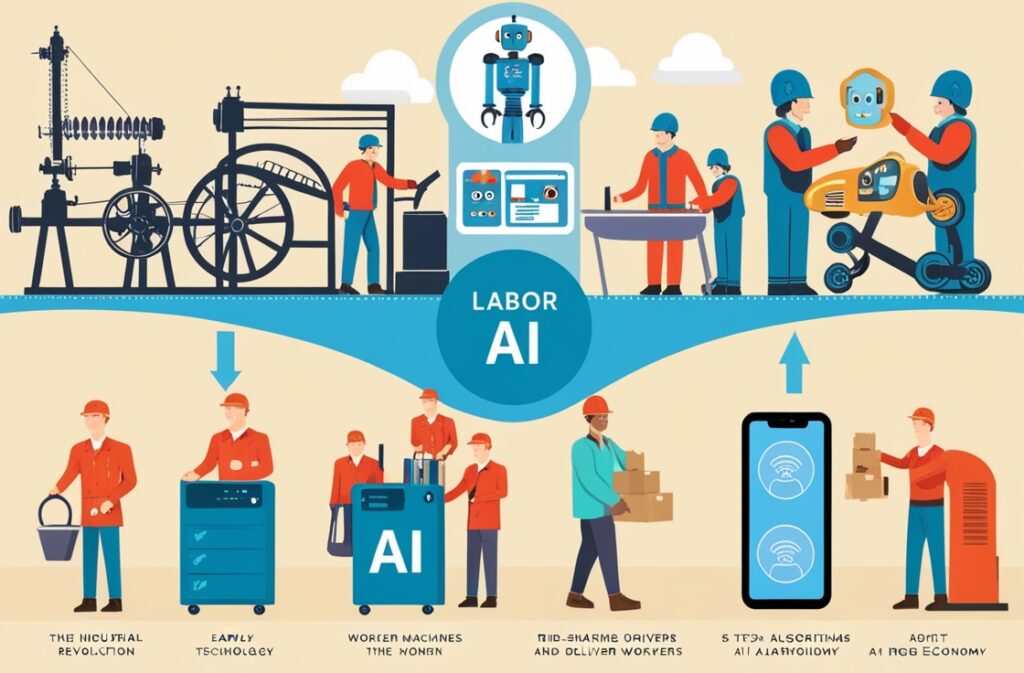Old Fears About New Technologies

Concerns About the Future of AI
Many people are unsure about the future of generative AI. A poll by Chicago Booth involving U.S. economists showed that some experts are worried. They think AI might negatively impact high-skilled workers in advanced countries.
Poll Findings
- 32% of panelists believe AI will hurt the earning potential of many skilled workers in the next decade.
- 39% of respondents are uncertain about AI’s impact.
Also Read: Global Researchers Sign New Pact to Make AI a Global Public Good
Historical Fears Around Technology
Worries about new technologies are not new. During the Industrial Revolution, the introduction of inventions like the spinning jenny and cotton gin raised similar concerns about job stability.
Over 200 years ago, Luddites in England destroyed machines used in ways they considered unfair. These workers weren’t against machines; they wanted them operated by trained and fairly paid workers.
Modern Concerns and Automation
Today, technologies like robots and AI are taking over tasks once performed by humans. Research from top institutions like Harvard University and the German Institute for Economic Research has shown this trend, but no conclusive evidence exists on the future of work.
Automation Research Findings
- Hundreds of studies predict changes in work due to automation.
- McKinsey forecasts that within a decade, AI will achieve human-level performance in tasks like coordination and understanding language.
Latest Topics:
- Addressing Historical Concerns About the Impact of New Technologies
- Global Researchers Sign New Pact to Make AI a Global Public Good
- Stakeholders Advocate for Protection of Workers’ Rights Amid AI Growth
- Digital Sustainable Development for Arab States
- ChatGPT Introduces Five New Voices, Accents, and Personalized Features
The Gig Economy and AI
In the 21st century, the gig economy has emerged with companies like Uber and DoorDash. These businesses pay drivers very little and use automated “white-collar” management with algorithms for decision-making.
Brian Dolber, a communication professor at California State University, San Marcos, calls this a potential starting point for major changes in labor and technology. He notes that AI might not just manage production but also create new ideas by synthesizing input.
Key Points
- Gig economy as a transformation point for labor and technology
- AI’s potential to generate new ideas, not just manage tasks
As we look ahead, it’s clear that AI will continue to shape the landscape of work and technology. While the exact impact remains uncertain, it’s crucial to stay informed and adapt to these ongoing changes.